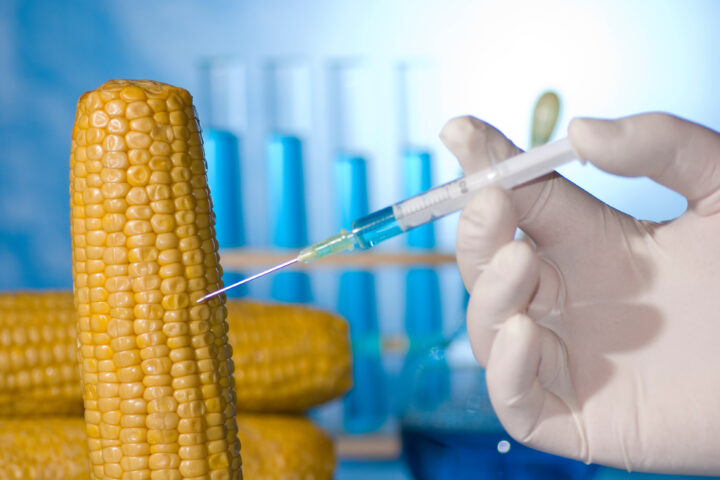
The Federal Council and the new breeding technologies: Too little and too late
It is disappointing what the Federal Council announced in a media release on 25 October 2023 on the subject of new genetic methods. Both in terms of content and timing, the government is putting on the brakes. The dithering is incomprehensible.
Tuesday, October 31, 2023
In the Gene Technology Act, Parliament had instructed the Federal Council to submit a draft decree by mid-2024 for risk-based approval regulations for plants and seeds produced using new breeding technologies. Apparently, the Federal Council is now unable to meet this deadline, according to the statement. The message will now be presented only in mid-2025, "due to the high complexity of the issue," he writes. In particular, "one also wants to include the proposal of the EU Commission for the regulation of new genetic engineering methods in one's own considerations." The statement is surprising, as the EU Commission has already presented a corresponding proposal in mid-2023.
EU Parliament already discussing the Commission proposal
The EU Commission's proposal is clear and conclusive: Plants that have been bred using the new breeding methods and do not contain foreign DNA will be subjected to a testing procedure. Provided that these plants meet the criteria defined therein, these products will be treated like conventional plants. This means that no additional risk assessment needs to be carried out for these plants - and they can be labeled in the same way as conventionally bred plants.
And the EU continues to move forward: The EU Commission has stated that it wants to pass the deal before the end of the legislative period in June 2024. And that is quite realistic, because the Environment and Agriculture Committees in the European Parliament are already discussing the Commission's proposal. There is a good chance that the European Parliament will discuss and vote on it in plenary session as early as February 2024. The Council Working Party on Genetic Resources and Innovation in Agriculture of the European Council is also working intensively and is scheduled to meet four more times on the topic by the end of the year.
This single-minded approach by the EU should also have caught the attention of the responsible federal offices. After all, it makes sense for Switzerland to move in step with the EU in terms of timing and content. After all, the Federal Council has repeatedly emphasized in the past that it would make little sense for Switzerland to go it alone when it comes to regulating new breeding methods, as it is strongly integrated into the EU market. In addition, the Swiss moratorium on genetic engineering expires at the end of 2025.
Precautionary principle becomes prevention principle
But there is a threat of even worse things to come: the Federal Council has announced that it intends to follow the EU Commission's proposal in the consultation draft. However, in deviation from this, the Federal Council would like to "build in stronger control mechanisms, taking into account the precautionary principle". It will be interesting to see what the "Swiss finish" will look like. And above all, how this unilateral approach will ultimately be justified.
The "Swiss finish" is to be put up for debate as an "option" in the explanatory report of the Federal Council. It is to be hoped that it will be clearly expressed in the consultation that an anti-innovation go-it-alone by Switzerland makes no sense, neither for scientific nor for political reasons. Otherwise, the precautionary principle is once again in danger of becoming a principle of prevention. And this at a time when it is becoming increasingly difficult to grow enough food in Switzerland too.
Kindly note:
We, a non-native editorial team value clear and faultless communication. At times we have to prioritize speed over perfection, utilizing tools, that are still learning.
We are deepL sorry for any observed stylistic or spelling errors.
Related articles

Enabling what is inevitable
The opponents of progress are once again in the starting blocks. In mid-April, critics of genetic engineering announced a popular initiative aimed at making any relaxation of the existing moratorium on genetic engineering impossible. The exact wording is not yet known, but the statements made by the exponents make it clear that the total blockade on modern plant breeding is to be enshrined in the constitution.

EU decision in favour of new breeding methods with stumbling blocks
On 7 February, the EU Parliament voted in favour of approving the new genomic breeding methods in the EU. MEPs voted in favour of a corresponding proposal by 307 votes to 263 with 41 abstentions. Further deliberations will now follow.

Authorisation of new crop protection products: federal government hesitates, parliament exerts pressure
In Switzerland, the authorisation of new crop protection products is stalling. And there is a disturbing asymmetry. The federal government immediately withdraws authorisations for crop protection products that the EU takes off the market.

Arguments for new breeding technologies
Plant breeding is complex. Accordingly, there are many questions in the discussion surrounding new breeding methods. swiss-food.ch has compiled the most important questions and answers on new breeding technologies.

